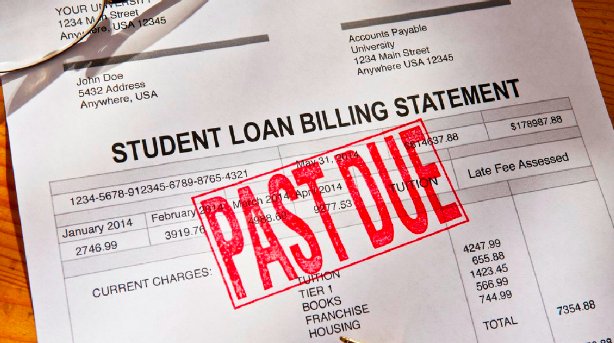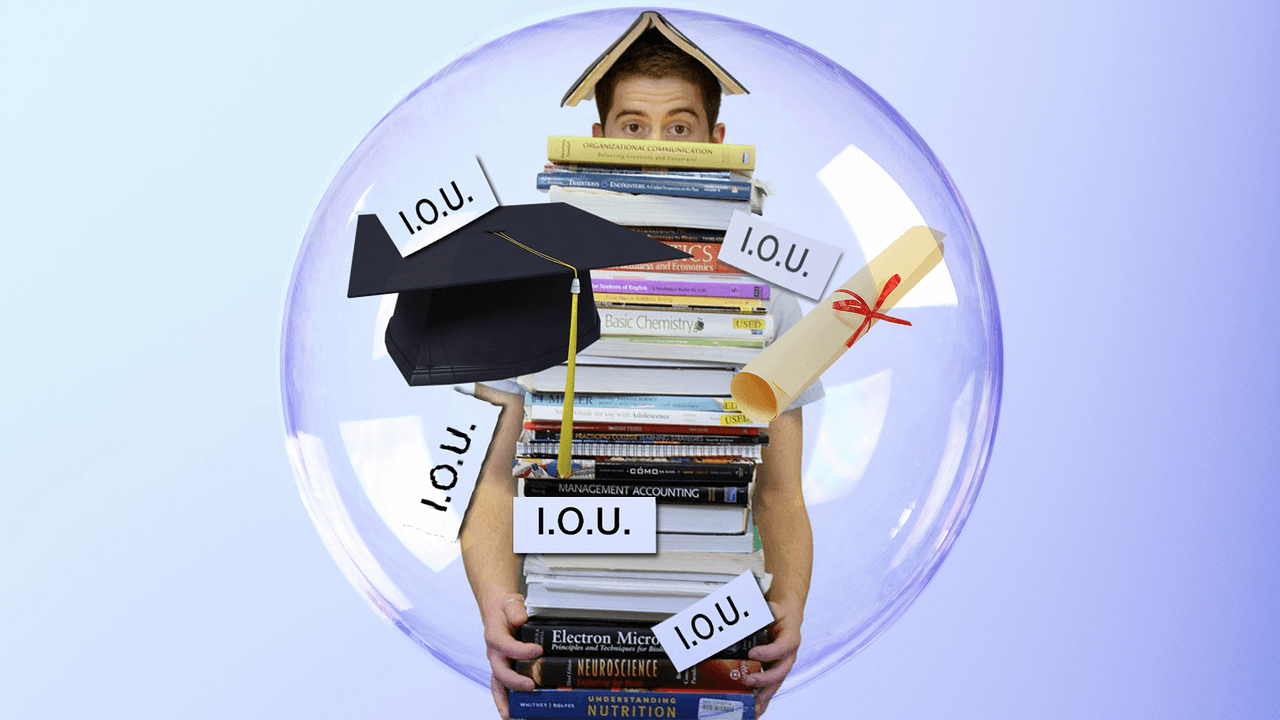Student-centric advice and objective recommendations
Higher education has never been more confusing or expensive. Our goal is to help you navigate the very big decisions related to higher ed with objective information and expert advice. Each piece of content on the site is original, based on extensive research, and reviewed by multiple editors, including a subject matter expert. This ensures that all of our content is up-to-date, useful, accurate, and thorough.
Our reviews and recommendations are based on extensive research, testing, and feedback. We may receive commission from links on our website, but that doesn’t affect our editors’ opinions. Our marketing partners don’t review, approve or endorse our editorial content. It’s accurate to the best of our knowledge when posted. You can find a complete list of our partners here.
Student Loan Default: What it is and How to Avoid it
 By
Kayla Korzekwinski
By
Kayla Korzekwinski 
Kayla Korzekwinski is a Scholarships360 content writer. She earned her BA from the University of North Carolina at Chapel Hill, where she studied Advertising/PR, Rhetorical Communication, and Anthropology. Kayla has worked on communications for non-profits and student organizations. She loves to write and come up with new ways to express ideas.
Full BioLearn about our editorial policies

Maria Geiger is Director of Content at Scholarships360. She is a former online educational technology instructor and adjunct writing instructor. In addition to education reform, Maria’s interests include viewpoint diversity, blended/flipped learning, digital communication, and integrating media/web tools into the curriculum to better facilitate student engagement. Maria earned both a B.A. and an M.A. in English Literature from Monmouth University, an M. Ed. in Education from Monmouth University, and a Virtual Online Teaching Certificate (VOLT) from the University of Pennsylvania.
Full BioLearn about our editorial policies

Defaulting on student loans can be intimidating because of the consequences that come with it. Fortunately, according to the College Board, student loan default has been declining over the last decade. Still, it’s important for all borrowers to be aware of what student loan default means and how it can be prevented. Continue reading to learn more about student loan default and how to avoid it!
Also see: Student loan default: How to get out of it
Student loan default defined
Default on student loans happens when you fail to make payments according to the terms agreed upon in the promissory note. According to the US Department of Education, federal loans enter default when a payment hasn’t been made for 270 days. For private loans the time frame varies, so be sure you know the details of your loans. Some may enter default as soon as they miss a payment. Most private loans, however, enter default after 120 days without payment.
Student loan default vs. delinquency
If you’ve heard of student loan default, you’ve probably also heard of student loan delinquency. People often use these terms together, but they mean different things. As mentioned above, student loan default occurs when you fall months behind on payments.
Student loan delinquency occurs 1 day after you miss a payment. You will remain in delinquency until you make the past due payment. Other options for getting out of delinquency include changing your repayment plan or entering deferment or forbearance.
After you are delinquent for 90 days, for federal loans, the lender will report you to credit bureaus. This will affect your credit score for up to 7 years. Private lenders will also report you, but may have different time frames. Remember, if you continue to be delinquent, you will enter default.
Learn more about how student loans affect your credit score.
Consequences of student loan default
Student loan defaults remain on your credit score for up to 7 years after you repay the sum. The drop in credit score can take years to recover from. This isn’t the only consequence of student loan default.
Defaulting on federal student loans revokes your eligibility for deferment, forbearance, repayment plans, and student loan forgiveness. Default also removes your eligibility for future federal student loans. Still, there are more consequences of federal student loan default:
- The loan balance becomes accelerated, this means the entire balance becomes immediately due.
- Wages could be garnished, meaning your employer could be required to withhold a portion of your income and send it to your lender.
- The lender can take you to court, and you will be responsible for all fees related to the proceedings.
- The school you attended may withhold your transcript until the default is satisfied.
- You may be ineligible to enlist in the military while in default.
- Tax refunds and social security payments may be intercepted.
- The lender may turn your loan over to a collection agency. This is an entity that collects unpaid debt. You will be responsible to pay all costs associated with collections.
Federal student loans have harsher default consequences because the government offers many preventative options. Private lenders cannot garnish your wages without going through the court. If the private lender wins the decision, however, it will be able to garnish your wages. Each individual private lender can have different consequences.
How to avoid student loan default
As you can see, it’s important to take action to avoid student loan default. As soon as you feel that you are at risk of default, you should explore your options.
Apply for a pause on payments
For federal student loans, you can apply for deferment or forbearance, which will allow you to delay your payments legally. Keep in mind though that interest can continue to accumulate on the loan.
Income-driven repayment plans
Another option for avoiding federal loan default is to apply for an income-driven repayment plan. These plans are based on your monthly income, and will make your payments more affordable. read about the SAVE Plan, which is the newest income-driven repayment plan. Additionally, you should take advantage of the 270-day grace period before default to make a repayment plan.
Fresh Start Program
Fresh Start is a new program that allows individuals who entered default before the pandemic to return to good standing with their loans. Your loan amount won’t necessarily change, but you will likely be able to enter into a new payment plan with lower monthly payments.
There are also more general ways to avoid student loan default on both private and federal loans:
- Borrow loans conservatively.
- Know the details of all your loans such as the lender, amount, interest rate, and payment plan.
- Make payments on time as frequently as you can.
- Consolidate or refinance loans to get a lower interest rate and/or have fewer individual payments to make.
Lastly, be sure to contact your lender or loan servicer with any issues or changes that could affect your loan payments.
Student loan default and its consequences may be a source of worry for students and graduates. There are many ways to avoid defaulting on student loans as long as you keep track of your payments and finances. Remember, if you feel you need help, ask for it!
Related: How to lower student loan payments
Frequently asked questions about student loan default
Are there any programs that can help me get out of student loan default?
Who experiences student loan default most?





